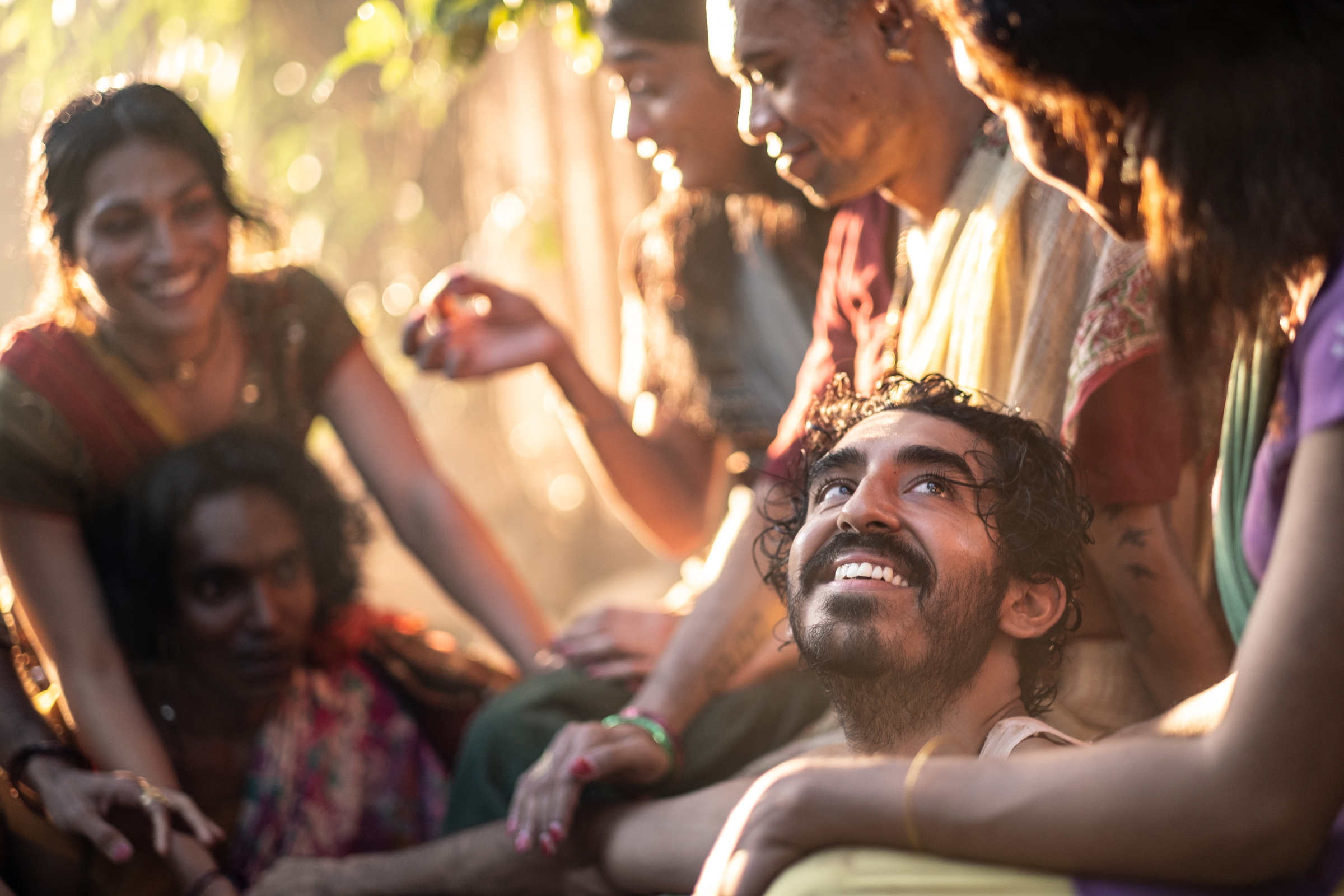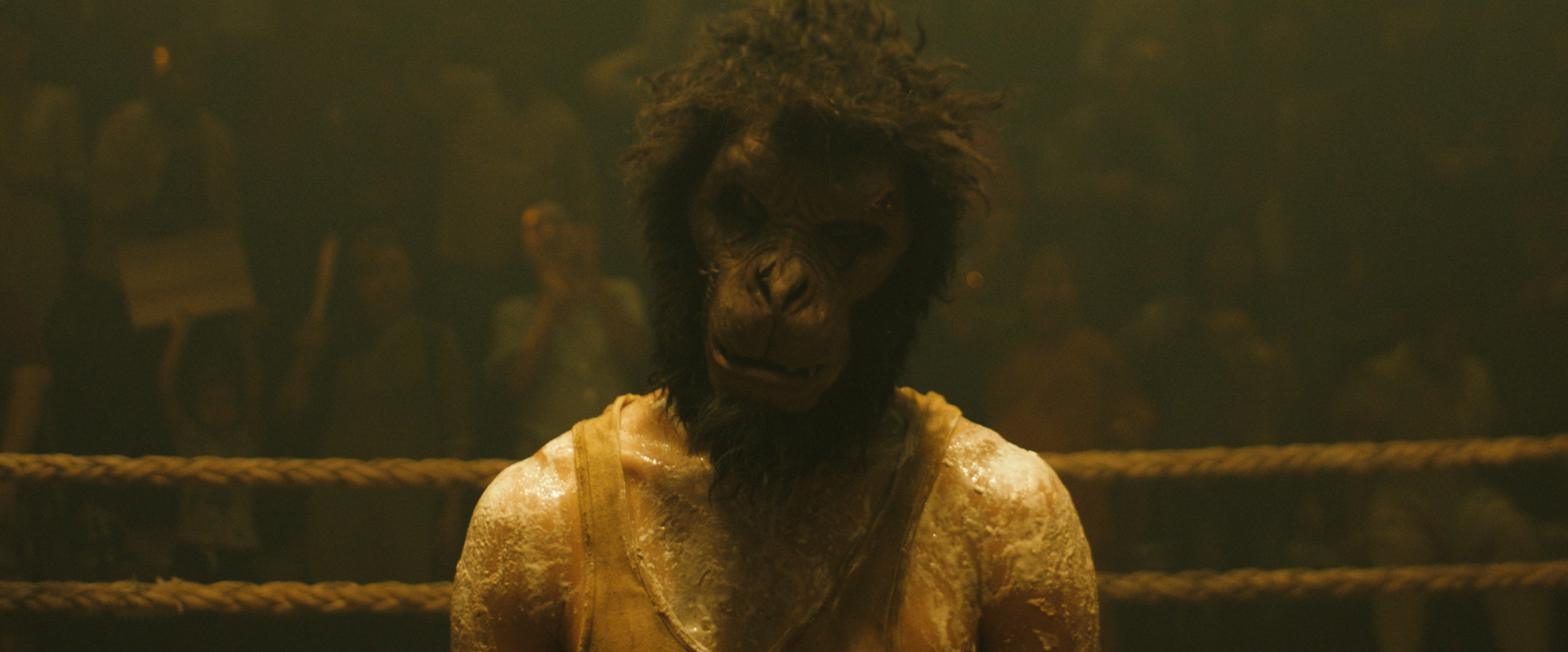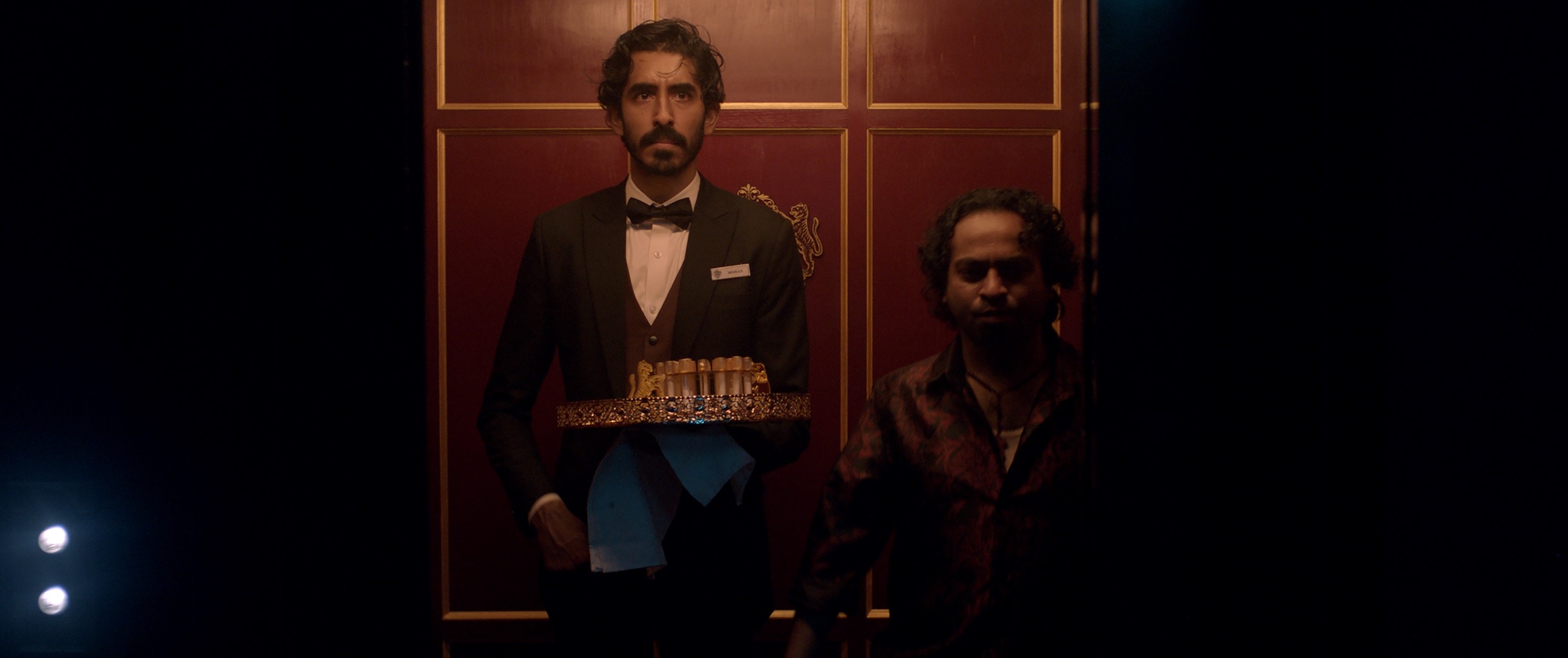
Even when a movie is far from perfect, you can tell when a director has poured his soul into it. Dev Patel's directorial debut Monkey Man—he's also the movie's star—is trying too hard, and for too much. It wants to be a political allegory, a somber study of a man haunted by childhood trauma, a clarion blast of inspiration for downtrodden humans seeking to summon strength, and last but hardly least, a brutally exhilarating action entertainment. It succeeds at some of those things, some of the time. But Patel's conviction, both as a fledgling director and an intensely likable actor, has a blurring effect on the movie's flaws. Just when you realize you're confused by the somewhat muddled story, or lost in its myriad references, his solemn warmth draws you back in. The movie wouldn't work with another star. It's Patel's show through and through.
His character has a generic name, Kid, that marks him as a man who's never been able to find his center. He lives in the fictional city of Yatana—with its mix of obscene wealth and abject poverty, its views of tuk-tuks slashing down the road and street dwellers huddled under newspapers, it's like a cross between Mumbai and Gotham City. Kid makes a meager living as a wrestler at an underground fight club, his haunted visage hidden by an ape mask. A sleazy promoter (Sharlto Copley) pays him to lose to his opponents, and every night he's surrounded by spectators howling for his blood. He's the classic underdog who's ready to burst out of his skin.

We get Kid's backstory bits at a time, in shardlike flashbacks. He was raised in an idyllic forest setting by a mother (Adithi Kalkunte) who clearly adores him. They play hide-and-seek in their leafy paradise; she regales him with inspiring but somewhat terrifying tales of the Hindu monkey god Hanuman. We come to learn that Kid later witnessed his mother's rape and murder at the hands of a crooked cop, Rana (Sikander Kher), during a monstrous invasion of the family's tranquil village. (The authorities launch their attack, mercilessly, while the local kids are gathered for a puppet show, one of whose star figures happens to be a paper-mache Hanuman.)
Back in the present, Kid manages to land a menial job in a glitzy brothel, where the sneering, preening Rana is a regular. He's still moonlighting in that wrestling ring, but his diffuse rage has a new focus: he will avenge his mother's murder by bringing Rana down, an elaborate process that begins with a cocaine vial filled with bleach. What follows is an extended and choppily edited sequence of bone-jarring violence, during which Kid reinvents himself as an action figure, a ruthless fighter who tumbles, leaps, and kicks his way out of his own internal prison, emerging battered and bloody though not yet victorious. That victory will have to wait; this elaborate showdown hits barely halfway through the movie.
There's a lot going on in Monkey Man, including a subplot involving a charismatic guru and political schemer (Makarand Deshpande) who's gearing up for certain victory in an upcoming election. His role in Kid's story emerges, shakily, in the last section of the film, but until then, his phony radiance and pious pronouncements mark him as a power-mad serpent who can't be trusted. The movie's gears are further churned by a rotating crew of supporting characters—including a group of exiled hijra, people identifying as a third gender—whose roles aren't always as fleshed out as they could be. Patel, who co-wrote the script with Paul Angunawela and John Collee, seems to want Monkey Man to serve numerous purposes, and his intentions collide in a muddy swirl. His targets include racism and religious intolerance in modern India and the indifference of the ruling class toward the poor, but the movie skitters across this surface of ideas like a stone skipping over water.

It's often hard to know exactly what Monkey Man is trying to say, and its self-serious tone doesn't help. Patel began filming before the pandemic, and finishing the movie was a trial; it was fated for a streaming release until filmmaker and producer Jordan Peele intervened on its behalf. (The picture is being released in theaters by Universal.) As a young actor, Patel broke through in the role of a downtrodden Muslim Indian in Danny Boyle's 2008 Slumdog Millionaire; more recently, he played the lackadaisical-turned-brave Gawain in David Lowery's The Green Knight, and made a marvelous Dickensian hero in Armando Iannucci's The Personal History of David Copperfield. Patel is an Englishman, the son of first-generation immigrants (his parents are Gujarati Indians from Nairobi); his identity is his to shape as he chooses, and Monkey Man appears to be a step toward that defining of the self.
There is much eye-gouging, throat-stabbing, and calf-slashing along the way; this movie is not for the faint of heart, and most of its violence is grimly humorless. But Patel, even playing a character hell-bent on revenge, is so filled with light that he sometimes seems to have whirled in from another movie. In addition to being a jumbled parable, Monkey Man is an ode to the action movies Patel has always loved—Bruce Lee is one of his heroes—and as a performer, he's so sure-footed that he almost single-handedly makes you believe in this movie's mission, whatever it is. Kid, speaking in a language of balletic jetés and boxer-like jabs, is on the side of right, not might, and Patel pushes that idea across with both body and spirit. Whatever Patel is going for, he's at least singing out with conviction—not just from the diaphragm but also from the muscle better known as the heart.
More Must-Reads From TIME
- The 100 Most Influential People of 2024
- Coco Gauff Is Playing for Herself Now
- Scenes From Pro-Palestinian Encampments Across U.S. Universities
- 6 Compliments That Land Every Time
- If You're Dating Right Now , You're Brave: Column
- The AI That Could Heal a Divided Internet
- Fallout Is a Brilliant Model for the Future of Video Game Adaptations
- Want Weekly Recs on What to Watch, Read, and More? Sign Up for Worth Your Time
Contact us at letters@time.com